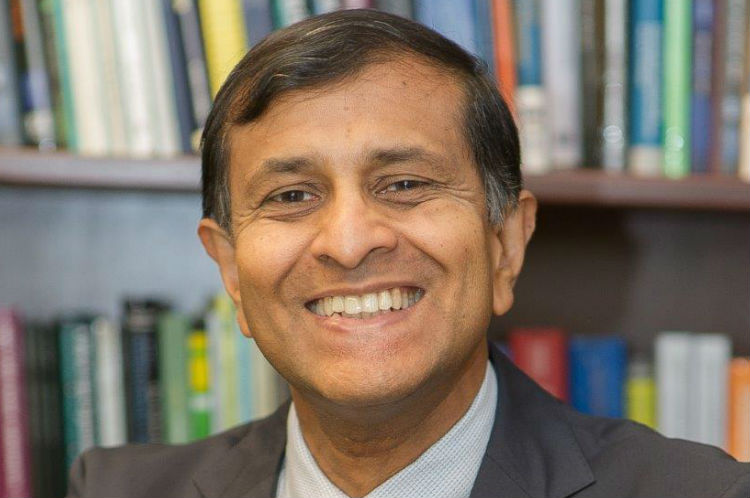July 22, 2019 Reading Time: 3 minutes

Reading Time: 3 min read
The Lakshman Kadirgamar Institute (LKI) recently interviewed Dr. Ganeshan Wignaraja, LKI’s Executive Director, to understand Brexit and its implications for Sri Lanka. This interview is part of the LKI Spotlight series, which features interviews with thought leaders around the world, on current and emerging issues of international relations.
See below for a lightly edited transcript of the interview, featuring Dr. Wignaraja’s responses to questions posed by Adam Collins, Research Fellow at LKI.
LKI: What is happening on Brexit and how will it affect the parties concerned?
Dr. Wignaraja: As of now, the UK is due to leave the European Union (EU) on 31 October 2019. The outcome of the Brexit process remains uncertain. A new UK Prime Minister is expected soon, possibly a hardline Brexiteer. A leadership race to succeed Prime Minister Theresa May is underway with Boris Johnson and Jeremy Hunt as the two contenders. Studies suggest that, whatever form it eventually takes, Brexit will likely slow the UK’s growth and have a knock-on impact on the rest of the European Union (EU).
Given that the EU is the largest trading block in the world, accounting for around a third of global trade, Brexit is, therefore, likely to have significant implications for the rest of the world. The impact will vary between countries, with some possibly seeing increased trade with the UK as businesses seek out new markets. But, as Brexit is happening amidst a slowing world economy facing heightened US-China trade tensions, it is another worrying global risk.
LKI: The European Union (EU), including the UK, is an important economic partner of Sri Lanka. How will Brexit affect Sri Lanka’s relations with the EU and the UK?
Dr. Wignaraja: The EU is Sri Lanka’s largest market for goods exports, mostly consisting of garments, and the UK is the most important destination within the grouping. Sri Lanka currently enjoys GSP+ tariff concessions on exports to EU countries. However, any drop in demand for Sri Lanka’s goods due to the negative impact of Brexit, or any change in tariff access to the UK market, is likely to be a negative shock to Sri Lanka and its prized garment sector. Furthermore, domestic discussions in Sri Lanka about the resumption of capital punishment for drug-related crime has attracted the scrutiny of the EU and may have possible implications for Sri Lanka’s GSP+ concessions. Given the fragility of the Sri Lankan economy following the Easter Sunday attacks and political uncertainty linked to elections, even a small shock may have significant implications for Sri Lanka.
LKI: How can Sri Lanka prepare for the unfolding Brexit uncertainties and possible scenario of a no deal Brexit?
Dr. Wignaraja: Sri Lanka must continue to closely monitor developments in the Brexit process. Political developments in the UK over the coming weeks and months, particularly the race to succeed Theresa May as UK Prime Minister, will play a crucial role in determining the outcome. In the meantime, developing a strong business-government partnership locally would help address the opportunities and challenges whatever the outcome may be, and will be key to protecting Sri Lanka’s interests. Think tanks have an important role to play in undertaking studies and helping to inform policy debates in Sri Lanka.
LKI: What urgent steps should the country take and has any such measure being taken to minimise the impact?
Dr. Wignaraja: Policymakers have stepped up their engagement with the UK since the Brexit vote in 2016 to ensure that Sri Lanka maintains the concessionary tariff access that its exports currently enjoy when entering the UK market, courtesy of the EU’s GSP+ scheme. This must continue and should be complemented with greater political and economic engagement with other EU markets to diversify trade and investment links. Attracting outbound UK financial and professional services firms into the Colombo Port City is another imperative. Greater efforts should also be made to attract more tourists from emerging EU states, such as those in Eastern Europe. Discussions should also be initiated with the EU on the GSP+ scheme in the light of unfolding domestic political developments.
END
The Lakshman Kadirgamar Institute. (2019). LKI’s Executive Director on Brexit and Sri Lanka at the Ceylon Chamber of Commerce. [online] Available at: https://lki.lk/events/lkis-executive-director-on-brexit-and-sri-lanka-at-the-ceylon-chamber-of-commerce/. [Accessed 9 July 2019].
The Lakshman Kadirgamar Institute. (2019). Takeaways – Geoffrey Van Orden MEP, Grace Asirwatham and Ravinder Kaur on ‘Brexit and the Future of Europe: The Implications for Sri Lanka and India.’ [online] Available at: https://lki.lk/publication/takeaways-geoffrey-van-orden-mep-grace-asirwatham-and-ravinder-kaur-on-brexit-and-the-future-of-europe-the-implications-for-sri-lanka-and-india/. [Accessed 9 July 2019].